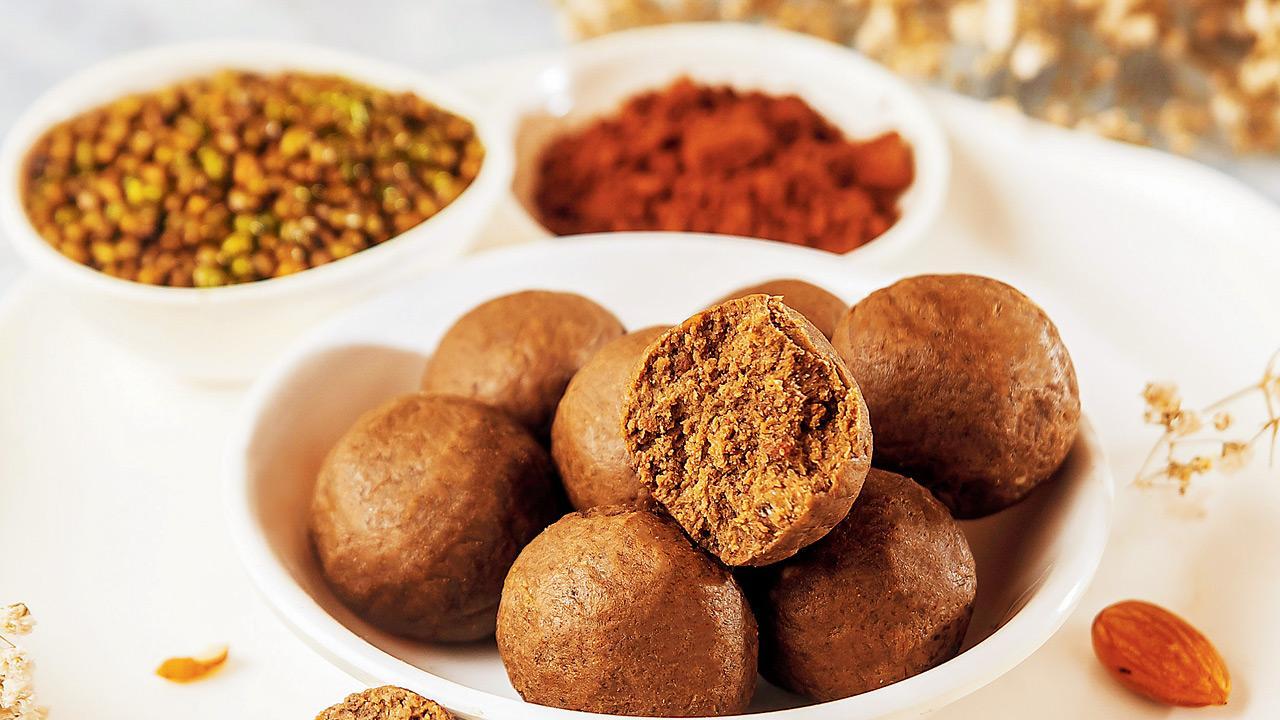A food entrepreneur is infusing laddoos with nutritious, blue-green microalgae to help vegetarians get their dose of protein

Hundred grams of spirulina is said to contain close to 60 gm of protein
Before launching her startup, Appetite Food, in August 2020, entrepreneur Sonali Kocharekar spent a few years learning about the latest trends in nutrition and following the work of globally-acclaimed experts in the field. It was during research that she stumbled on spirulina, a microalgae that has been consumed for centuries for its high nutritional value. A type of blue-green algae, it grows naturally in oceans and salty lakes in subtropical Mexico and Hawaii. The United Nations in 1974 named spirulina one of the best foods for the future, and declared it as the number one food to distribute among malnourished communities. The reason behind this was simple: It is rich in protein, vitamins, minerals, carotenoids, and antioxidants that help protect cells from damage. Aside from supplements, the US Food and Drug Administration (FDA) allows manufacturers to use spirulina as a colour additive in gum, candy and other packaged foods. Realising its game-changing potential as a dietary supplement in India, Kocharekar decided to infuse it in one of India’s most-loved sweet foods, laddoos.
ADVERTISEMENT
Sonali Kocharekar
Spirulina tastes like the sea, Kocharekar tells us. “It is earthy with a slightly sulphuric edge. While it can certainly become an acquired, pleasant taste, most people would wrinkle their noses after having a bite.” With the laddoos, she has managed to mask the unpleasantness, while keeping its nutritional value intact.
When this writer took a bite, it reminded her of the texture of besan laddoo. While not too sweet, you realise it’s oceany-flavour only in the aftertaste. The laddoo is a good choice, we think, because it’s a sweet popular across India, with every community having its own version. “The nutrition profile of spirulina degrades significantly when exposed to heat. Prolonged heating destroys biological elements such as the protein, amino acids, pigments and all the goodness that you get from spirulina in the first place. It should be infused into food only after the cooking process and just before packing or serving,” says Kocharekar, who sources spirulina from Malaysia. At Appetite Foods, it’s added at the time of rolling the flour into spherical balls.
Due to its high protein content, spirulina is frequently referred to as the “lean, green, protein machine”. “While non-vegetarians gain this protein through meat and eggs, spirulina is an excellent alternative for vegetarians.”
The estimated global market value of spirulina in 2020 was $446.74 million, according to the Global Opportunity Analysis and Industry Forecast, 2020–2027. In 2016, the government of Karnataka, in conjunction with JSW Energy, instituted a statewide programme providing malnourished children with spirulina supplements. The JSW website reports a 46 per cent reduction in malnutrition cases among young children, pregnant women, and lactating mothers, while scientific studies are underway to better understand the effects of this programme. “Since the powdered form does not mask the taste and flavour, and the nutraceutical market is still in a nascent stage in India, there is a definite market for it in urban areas, including Mumbai.” Given the thrust on building immunity in the pandemic, there couldn’t be a better food to do the job, she thinks. “The immune system is made up of T cells, B cells and natural immune cells. Spirulina consists of certain elements that improve the functioning of these cells and hence, is the need of the hour.”
TO ORDER: appetitefood.in
PRICE: Rs 375 onwards
 Subscribe today by clicking the link and stay updated with the latest news!" Click here!
Subscribe today by clicking the link and stay updated with the latest news!" Click here!






